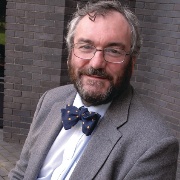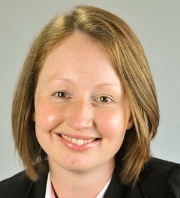Dilemma: Practice website undermines CCG


Dr John Allingham:
The authors could find themselves receiving a GMC complaint
Any practice airing grievances in public is unhappy and disgruntled and may feel disenfranchised but using social media is potentially dangerous.
Good Medical Practice states that doctors must ‘work collaboratively with colleagues, respecting their skills and contributions’ and ‘must treat colleagues fairly and with respect’. The authors of these critical comments could find themselves on the receiving end of a GMC complaint.
I recommend a meeting between the practice and the unhappy doctor with the LMC as honest broker to mediate. I would seek an outcome where the practice agrees to contribute to the discussions that lead to CCG decisions and public health initiatives and resists the temptation to make public criticisms.
Getting involved with the LMC and participating in liaison meetings gives the practice influence and a voice so I would encourage one of the GPs to seek election at the next opportunity.
If you can’t beat them join them! CCGs are membership organisations and the practice is a member. It may feel like joining the dark side but there is nothing to stop the GPs becoming active via election to the board of the CCG or acting as advisers.
Dr John Allingham is a GP in Dover and medical secretary at Kent LMC

Dr Donal Hynes: Consider a direct approach on a colleague-to-colleague basis
Knocking things down is easy – putting things right is hard. Scorning health initiatives is a populist activity. It was Brad Szollose who said ‘cynicism is a cancer – we should expunge it early’.
But it is challenging. You could consider a direct approach on a colleague-to-colleague basis but this is often unproductive and may be misinterpreted. A heightened awareness of the wider impact on his own patients of his undermining health messages could be helpful. So often the relative remoteness of a website blinds authors from the impact of their actions on their personal patients and friends.
However in reality it may be wiser to apply a more strategic approach. Pick up on a comment from the website and use that as an entry. Contact the individual by email saying how excellent you thought his comments were and could you please meet up with him to learn more. Then use this meeting to tap into his insights and how they could be used for the benefit of his patients and population. Invite him to join in a CCG activity so that his thinking could have wider application.
In reality, this colleague is interested enough in his local population to become involved in producing his website. That shows greater commitment and concern than many others. We should tap this enthusiasm as it is not common.
But the bottom line is – better having him inside the tent than outside.
Dr Donal Hynes is a GP in Somerset and co-vice-chair, NHS Alliance

Carol Mosedale: Several different avenues to explore
There are several different avenues open to the governing body member in seeking to resolve these issues. Each GP practice is required to nominate a practice representative to act as the link between the practice and the CCG. We suggest that the governing body member makes contact with the practice representative from the relevant practice and seeks to arrange a meeting so that the issues can be discussed face-to-face.
Many CCGs have adopted processes for resolving disagreements or disputes with their member practices which may be set out in the CCG’s constitution. If the issues cannot be resolved at the meeting then the governing body member may wish to invite the practice to participate in any dispute resolution process that has been adopted by the CCG. Some CCGs have entered into agreements with their member practices and these may set out a process by which members can raise issues and these can be discussed with the CCG.
If there is no agreed process, then we suggest the CCG and the practice consider an informal mediation process facilitated by independent third parties, such as a member of the NHS England local area team and the local LMC.
Carol Mosedale is a solicitor for health and social care law firm Hempsons
Pulse July survey
Take our July 2025 survey to potentially win £1.000 worth of tokens












